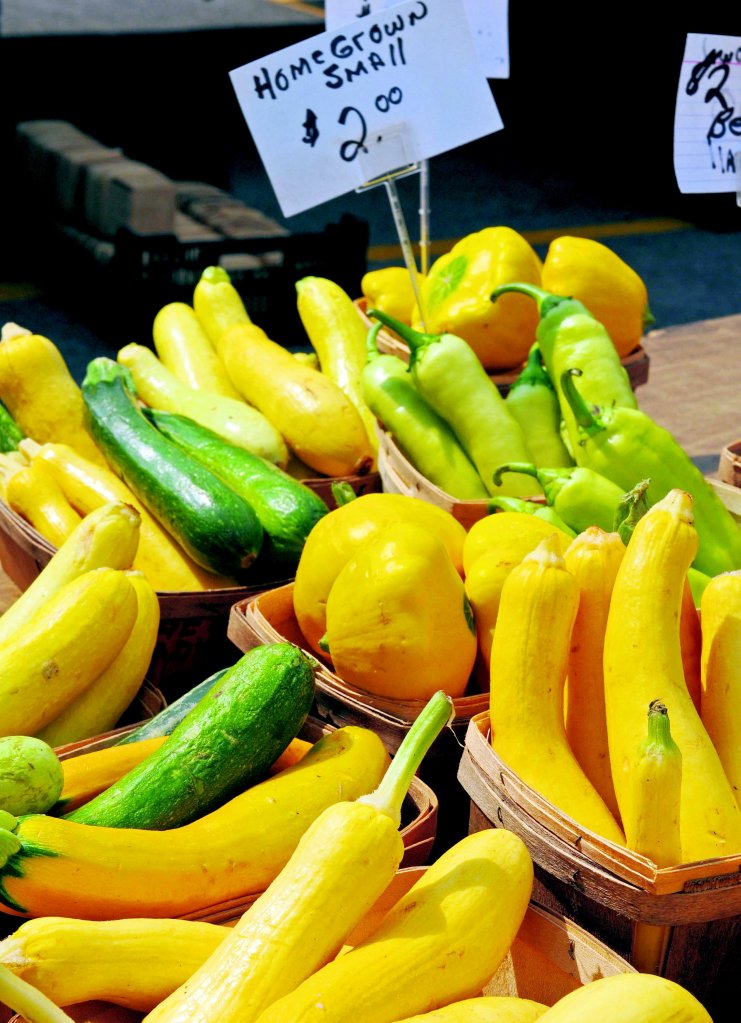Organic: Is it worth it?
Published 12:54 pm Friday, September 23, 2011

- Can't afford to go organic all the way? The Environmental Working Group provides a list of the "Dirty Dozen" fruits and vegetables to buy organic because regular varieties typically have higher levels of pesticides.
“Organic” has long been one of those buzzwords floating around health- and food-conscious communities. Most grocery stores devote at least an aisle — if not several — to organic foods. Restaurants and bakeries are even making a point to use chemical-free ingredients.
The United States Department of Agriculture sets the rules and certifies whether a farm or facility is officially producing organic foods — and the rules are specific.
SLIDESHOW: Which produce to buy organic
According to a statement on the USDA website, “organic is a labeling term that indicates that the food or other agricultural product has been produced through approved methods that integrate cultural, biological and mechanical practices that foster cycling of resources, promote ecological balance and conserve biodiversity. Synthetic fertilizers, sewage sludge, irradiation and genetic engineering may not be used.”
There’s a natural assumption that organic means healthy, and why not? Pesticides, hormones and antibiotics just don’t seem like the sort of things one wants to pump into their body, if not necessary.
The fact is, though, not a lot of studies actually confirm that people who eat organic food are more healthy than those who don’t.
Naheed Ali-Sayeed, chief clinical dietician at Kenmore Mercy Hospital in Tonawanda, N.Y., said the articles she’s read are not scientific based.
Ali-Sayeed points out that in the end, eating more fruits and vegetables, regardless of whether they’re organic, is what’s really important.
“I think it’s just the perception that it’s better. It may be, but all people cannot afford to buy everything organic. We still want you to eat a well-balanced diet and if it’s not organic it can still be nutritious for you to consume,” she said.
Catherine Stack, a doctor of naturopathy and certified nurse midwife in Niagara Falls, N.Y., agrees. “Organic is important to me, but getting people to eat healthy in the first place is the first step,” Stack said
Stack does say, however, that eating organically is the healthier option.
“If we took hormones in abundance, we’d have larger breasts and more body fat. What we’ve seen across the board is young girls with benign breast turmors and we feel that there’s a link between the hormones in milk, poultry and beef,” Stack explained.
The USDA stopped just short of saying organic is better for the human body in a recent interview. Soo Kim, of the USDA Department of Agriculture, says that organic practices are important for the health of soil, plants and animals and that it promotes sustainability, but agrees that current industry research is limited or ambiguous based on what products are being compared in studies on human health.
“If you’re talking about whether organically grown foods contain more or better nutrients, research is not conclusive,” Kim said.
For those looking to replace just a few items in the kitchen with the organic equivalent, the Environmental Working Group — an organization dedicated to protecting public health through disseminating information — provides a list of the “Dirty Dozen” fruits and vegetables to avoid because of typically higher levels of pesticides.
Apples, celery and strawberries top the list, followed by peaches, spinach, nectarines, grapes, sweet bell peppers, potatoes, blueberries, lettuce and kale/collard greens.
On the other end of the spectrum is the “Clean Fifteen,” which includes onions, sweet corn, pineapples, avocado, asparagus, sweet peas, mangoes, eggplant, cantaloupe, kiwi, cabbage, watermelon, sweet potatoes, grapefruit and mushrooms. These items are typically grown with fewer contaminants.
—
Danielle Haynes is a reporter for The Tonawanda (N.Y.) News.





